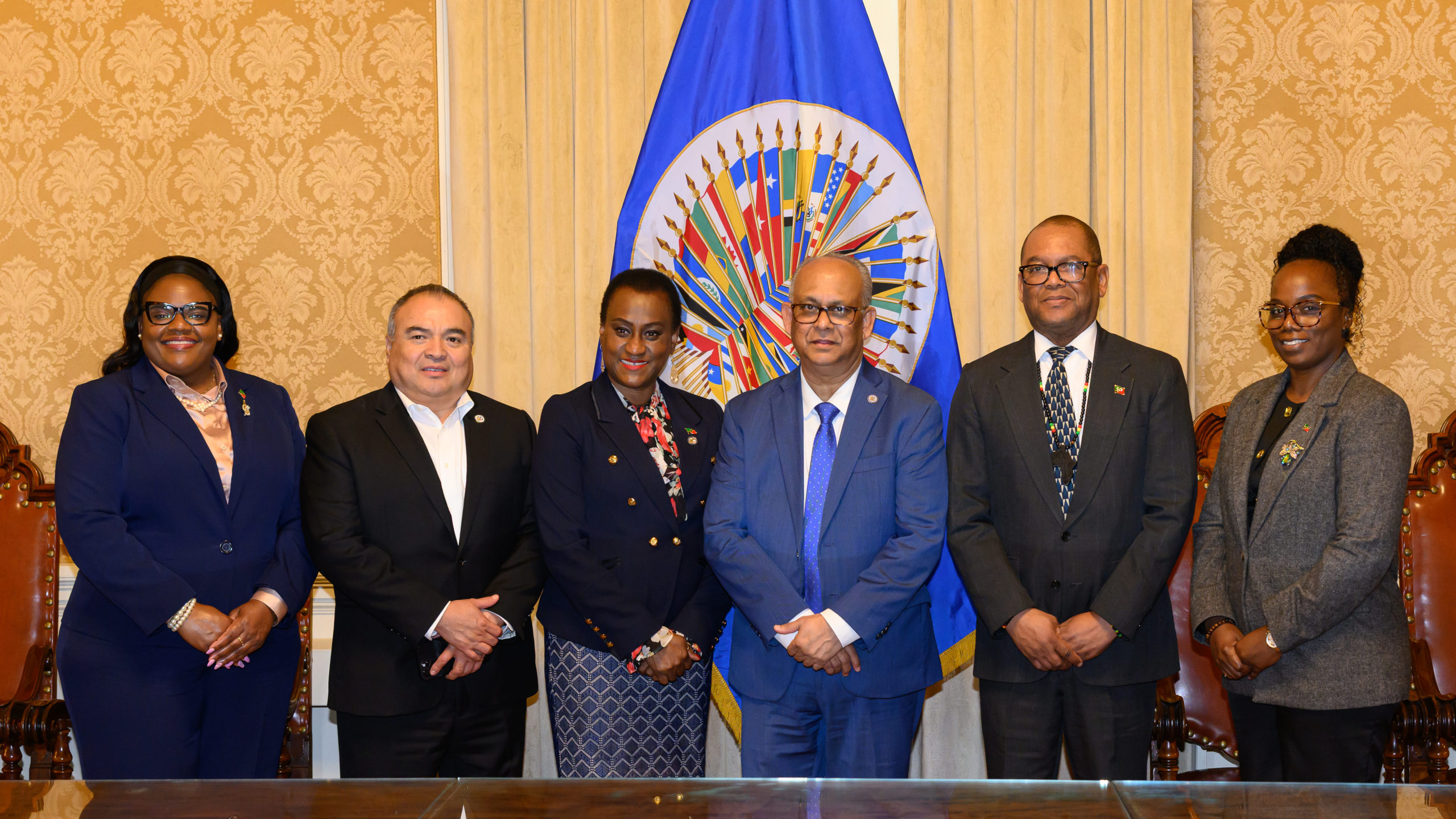Saint Kitts and Nevis Ratifies Inter-American Conventions on the Rights of Persons with Disabilities and Older Persons
Saint Kitts and Nevis has solidified its commitment to human rights by formally joining two crucial Inter-American conventions: the Inter-American Convention on the Elimination of All Forms of Discrimination against Persons with Disabilities (CIADDIS) and the Inter-American Convention on Protecting the Human Rights of Older Persons. This accession, marked by an official ceremony at the Organization of American States (OAS) headquarters, signifies a pivotal moment in the Federation’s ongoing pursuit of inclusivity and equality for all citizens. Ambassador Jacinth Henry-Martin, Permanent Representative of Saint Kitts and Nevis to the OAS, conveyed the nation’s profound dedication to upholding the principles enshrined in both conventions, emphasizing the fundamental right to dignity and respect for every individual, regardless of age or ability. This act signifies not just a symbolic gesture but a tangible commitment to translate these principles into concrete policies and initiatives within the Federation.
The accession to these conventions reflects a broader regional trend towards enhancing protections for vulnerable populations. The Inter-American Convention on Protecting the Human Rights of Older Persons, adopted in 2015 and effective since 2017, has garnered support from numerous countries across the Americas, including Argentina, Belize, Bolivia, Chile, Colombia, Costa Rica, Ecuador, El Salvador, Mexico, Peru, Suriname, and Uruguay. Saint Kitts and Nevis now joins this growing coalition committed to safeguarding the rights and well-being of older persons. Similarly, the CIADDIS, adopted in 1999 and in force since 2001, has been ratified by a significant number of OAS member states, including Argentina, Bolivia, Brazil, Chile, Colombia, Costa Rica, Ecuador, El Salvador, Guatemala, Haiti, Honduras, Mexico, Nicaragua, Panama, Paraguay, Peru, the Dominican Republic, Uruguay, and Venezuela. The Federation’s accession strengthens the regional movement toward eliminating discrimination against persons with disabilities and fostering their full participation in society.
OAS Secretary General Albert Ramdin applauded Saint Kitts and Nevis’s decision, highlighting the crucial role of inter-state cooperation and knowledge sharing in promoting best practices related to disability rights and the care of older persons. He emphasized the importance of scientific and technological advancements in treatment and assistive technologies, and stressed the vital need for the active involvement of persons with disabilities in the design, implementation, and evaluation of relevant policies and programs. Furthermore, Secretary General Ramdin underscored the invaluable contributions older persons have made throughout their lives and their deserved right to respectful treatment and comprehensive care.
Ambassador Henry-Martin detailed concrete steps the Federation is taking to harmonize its national legal and policy frameworks with the principles of the conventions. She outlined the ongoing review and update of the 2017 Disabilities Policy, supported by technical assistance from the United Nations Economic Commission for Latin America and the Caribbean (UNECLAC), and the simultaneous drafting of a new Disabilities Bill. Both initiatives are anticipated to be finalized by the end of 2025, demonstrating the government’s active commitment to translating international commitments into tangible domestic action.
Furthermore, Ambassador Henry-Martin highlighted collaborative efforts involving various governmental and non-governmental entities, including the Ministry of Aging and Disabilities, the Skills Training Empowerment Programme (STEP), the St. Kitts Nevis Association of Persons with Disabilities, Ade’s Place, Nevis Community-Based Rehabilitation (CBR), and the Ministry of Social Development. These partnerships are instrumental in creating training and employment opportunities for persons with disabilities, fostering their economic independence and social inclusion. A particularly successful initiative is the Seniors’ Day Programme, implemented by the Ministry of Aging and Disabilities, which currently serves six communities across the Federation. This program promotes social interaction, physical activity, and lifelong learning among older adults. The recent acquisition of a mobility bus further enhances accessibility for both older persons and individuals with disabilities, facilitating their participation in community life.
The accession of Saint Kitts and Nevis to these two Inter-American conventions represents a significant stride in the Federation’s human rights journey. It stands as a testament to the government’s commitment to fostering a society where all citizens, regardless of age or ability, are treated with dignity, respect, and afforded equal opportunities. This action aligns with broader regional and international efforts to protect the rights of vulnerable populations and promote inclusive development. The ongoing efforts to align national legislation and policies with the conventions’ principles, coupled with the implementation of practical initiatives like the Seniors’ Day Programme and the provision of accessible transportation, underscore the Federation’s dedication to translating its commitment into concrete action, ensuring that the promise of equality becomes a lived reality for all its citizens.
Share this content:












Post Comment